Anglers all over the world have different reasons why they fish. It’s a riveting activity that provides endless hours of entertainment and challenge for anglers of all skill levels.
There are a variety of reasons and purposes for fishing, including more simple things like pure enjoyment and mental therapy. However, fishing also serves larger purposes, like providing income through competition as well as general sales. Finally, for some, fishing is a means of survival.
Fishing is a versatile activity that serves a different purpose for everyone who does it. Continue reading as we delve into more details about those reasons.
Reasons For Fishing
1. Pure Enjoyment
One of the primary purposes of fishing is for people to enjoy it. Visit any local pond, river, or lake on a nice weather weekend, and you’ll find all sorts of people with a line in the water.
Fishing offers people the chance to take a break, relax from the monotony of their daily lives, and pour themselves into something different.
The challenge of locating the fish, choosing the right bait, and presenting that bait properly takes our entire focus and is a great chance to give us a break from the daily challenges.
Fishing also allows people to try something new. It’s a reasonably affordable activity to get into, and people learn fairly quickly it’s not something that’s easily mastered.
As a result, learning takes a substantial amount of time. People can spend dozens of days on the water throughout the year and still not gather all of the information they need.
The challenge of learning something new and trying to master the art of fishing leads to all sorts of enjoyment.
The versatility of fishing also allows the sport to continue to be fun time after time. You could be a lifelong spin angler and want to get yourself into fly fishing.
When you do, you have months and months to learn how to cast correctly, present your flies, and land fish.
Or, you could be a freshwater angler who lives close to saltwater and take some time to learn how to fish in the ocean.
It’s easy to keep things fresh and exciting when you’re fishing. You can visit new places, teach friends and family, try new techniques, go after a different species of fish, and work to test your skills.
Plus, all of the different weather seasons provide their own source of entertainment! There’s no reason fishing should become boring. There are too many options within it to keep things interesting.
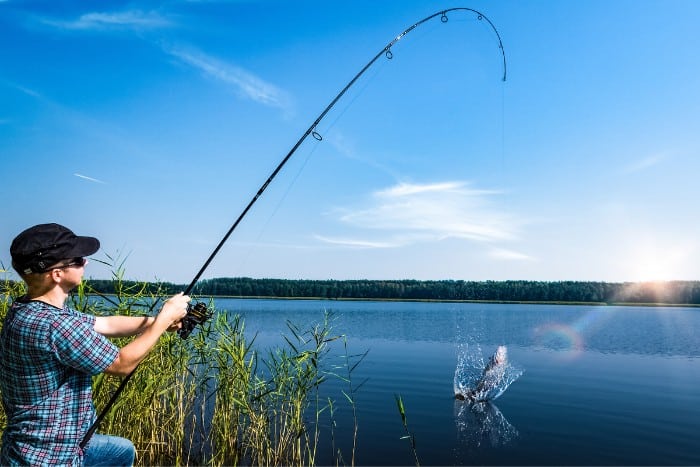
2. Therapeutic Reasons
On top of the pure enjoyment that fishing provides, another purpose is that fishing gives people a chance to better themselves.
The pressures of life can be highly challenging for people to endure. Whether it’s pressure from work, friends, or family, we often need a chance to get away and work through some of the things troubling us.
Fishing is a perfect option for this. Generally, it’s peaceful and takes our attention away from those things that may be filling our minds and distracting us.
Fishing programs for troubled teens, veterans struggling with PTSD, and a variety of other struggling people groups are pretty popular.
Health experts are well aware of the myriad benefits of fishing. Often, people who are struggling mentally don’t believe in themselves and lack confidence for a variety of reasons.
There’s power in taking on a challenge and succeeding. Fishing gives them the opportunity to accomplish small challenges regularly.
Attaching hooks, making accurate casts, and the joy of landing fish is proven to provide some necessary dopamine boosts to convince people to believe in themselves.
Fishing is a great chance to help insecure children. It gives kids an opportunity to take some responsibility for their own activities!
Insecure children can learn to cope with struggles by having their minds preoccupied and presented with a challenge.
As long as they feel safe in the environment, fishing is an easy, affordable, and enjoyable activity for young kids needing an extra boost in life.
Learning a new skill is valuable in the process of growing to believe in oneself.
Combine the mental benefits with the physical benefits, and fishing is ideal for anyone looking to become a better version of themselves.
The vitamin D from the sun, physical movement, and fresh air all help people struggling with who they are and who they want to be.
3. Economic Reasons
All across the world, money is consistently spent on fishing, which helps support millions of families.
Money is spent on everything from large corporations purchasing thousands of pounds of seafood for their grocery stores and restaurants to passionate anglers booking their dream fishing vacation.
In the United States in 2019, nearly 2 million people were employed within the fishing industry. Plus, almost $225 billion of sales occurred throughout 2019.
In the United States, there was $120 billion of value added to the United States economy.
a. Recreational Fishing
Recreational fishing brings in billions of dollars every single year to economies all over the world. Money is pulled in through a variety of different methods within the recreational fishing industry.
Fishing Trips
In the United States, people will pay thousands of dollars for fly fishing, deep-sea fishing, and traditional freshwater fishing excursions.
There are hundreds of lodges all over the country that employ numerous people that benefit from these fishing trips.
According to Sportfishing in America, United States citizens spent nearly $25 billion on fishing trips in 2019. International tourists spent around $6 billion on their fishing trips within the United States.
Not only do the lodges and guides benefit from these trips, but local businesses also find themselves making money off the yearly visitors.
Places like bait shops, restaurants, and even gear rental businesses find themselves profiting from the continuous flow of tourists.
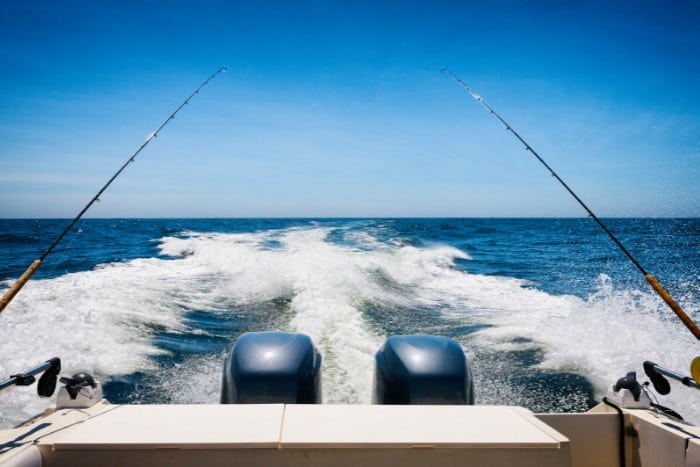
License Sales
Another massive money maker in the fishing industry is license sales. These sales generate nearly $1 billion each year for state governments.
There is a federal law in the United States that requires all of the money made on license sales to be put back into the natural resources used for outdoor activities.
Lakes, rivers, ponds, and even things like research programs greatly benefit from the sales of licenses.
Gear Sales
One of the largest sources of income for the recreational fishing industry is gear sales. Over $50 billion of fishing equipment was sold in 2019. Gear sold can be everything from boats, rods, reels, and bait.
With more and more people getting into the world of sport fishing, these numbers are certain to go up.

b. Commercial Fishing
Whenever a person or crew of people catch fish and sell it to a company for profit, it’s an example of commercial fishing.
People all over the world do this. For certain countries, commercial fishing is their primary money maker.
Jobs
Nearly 1.2 million of the 1.6 million fishing jobs in America are within the commercial fishing industry. It’s a large industry within the United States that helps support families all over the country.
Jobs like harvesting, processing, dealing, and even fish retailers are all included in these statistics.
Sale of Fish
Fish are a primary source of food all over the world. People will pay a significant amount of money to purchase the type of fish they like.
For example, according to Fisheries Economics in the United States, nearly 700 million dollars of Alaskan Salmon were sold in 2019. Other things like scallops are large generators of money across the country.
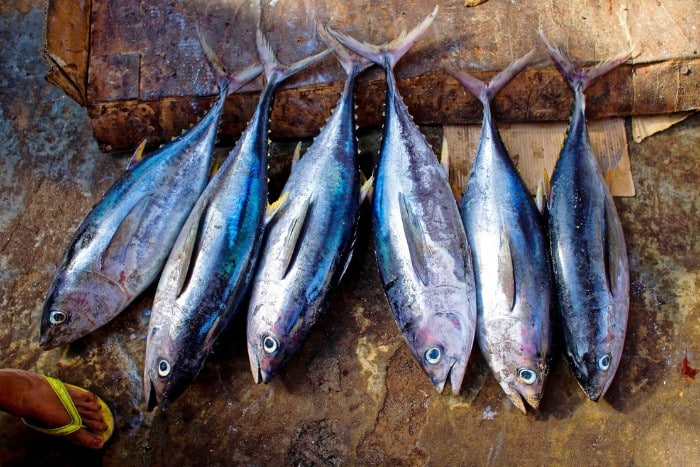
4. Survival Reasons
Depending on where people are living, the primary purpose of fishing is for survival. In the United States, low-income communities and more remote areas in places like Alaska rely on fish to feed their families.
While the United States doesn’t have a large population of people who need it to survive, places in Mexico, Central America, South America, Africa, Asia, Australia, and Europe have large groups of people dependent on fish.
A fishing license and some fishing equipment require an initial investment, but once the gear is acquired, it can provide thousands and thousands of necessary meals.
Plus, fish is generally a healthy source of protein, and it contains a variety of other chemicals and nutrients that keeps people healthy.
Countries like Indonesia are filled with people who depend entirely on fish. Not only do they eat fish and use it to feed their families, but they also participate in the sale of fish to larger corporations.
As long as fisheries stay healthy and the fish can be eaten, people will do their best to survive off of them as best as possible.
The beauty of surviving off of fish is that there are few regulations on what can or cannot be eaten. As long as people stay within the limits of fish allowed to be taken, all is well.
5. Fishing for Sport and Competition
In recent years, fishing has moved beyond recreational enjoyment and traditional buying and selling of fish, gear, and other equipment. It’s found a purpose within the world of competitive sports.
Now, competitive fishing is extremely popular all over the world. Freshwater bass fishing tournaments, fly fishing tournaments, and deep sea fishing tournaments occur all year long around the globe.
Even high schools across the United States are creating bass fishing teams. They have seasons throughout the fall and spring, and colleges are providing full-ride scholarships to anglers with the proper skills.
Now, fishing is seen as a regular sport, and it offers people a great chance to make a living without having to do any sort of other jobs.
Sponsorships, as well as prize pools, provide hundreds of anglers all over the world to make some serious money to support their families.
Depending on the tournament, prize pools can be upwards of several million dollars, with winners of tournaments pulling in nearly $1 million.
It’s becoming an extremely lucrative business thanks to the more recent popularity of fishing on social media.
Private tournaments are popping up all over the place, and they often allow anglers of any skill level to enter as long as they can pay a small entrance fee.
These small, private tournaments can provide anglers with a few hundred and even thousands of dollars of winnings each weekend.
As the popularity of fishing increases, it’s taking time for the competitive scene to adapt.
At the end of the day, it serves a purpose for all types of anglers looking to put their skills to the test and make some extra money.
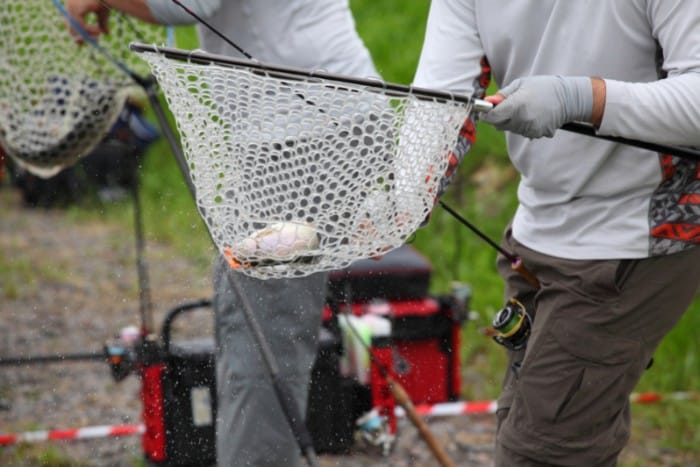
6. Environmental Reasons
Fishing also serves a purpose of protecting the environment. While many people may see fishing as something harmful to the environment, it can actually do the opposite.
As long as people are able to and willing to follow the rules and regulations set in place by the federal governments and environmental experts, fishing will, in fact, help the environment.
a. Managing Overpopulation
Like any living thing, fish have the potential to overpopulate if not adequately controlled. There are certain fish, like carp, that have the ability to reproduce at a faster rate than many other types of fish.
When carp reproduce, they take away the food and living areas from other fish, and they can ruin necessary habitats.
As a result, many states encourage anglers to catch as many carp as they would like and eliminate them accordingly.
Some will encourage anglers to kill and throw them away, and other places will even pay anglers to turn in the carp they catch.
Carp aren’t the only species of fish that have the potential to ruin some of the valuable habitats for native populations.
Many trout species across the United States have native waters that are filled with other species of trout, and their populations are hurting as a result.
Salmon are another species that are heavily protected and regulated.
Without these regulations, salmon species may be on the borderline of extinction, and millions of dollars of revenue and necessary salaries would be non-existent.
b. Protecting the Bigger Picture
With properly managed fish populations, oceans, lakes, rivers, ponds, and streams can grow. Too many fish in an area can take away necessary aquatic life that keeps water sources clean and sustainable.
An unhealthy water source can cause damage to land animals that rely on it to get their drinking water.
For example, a water source lacking necessary vegetation and being overrun by mussels and other harmful species can potentially hurt large and small animals and even some of the surrounding vegetation.
One seed from unhealthy vegetation due to unclean water can be transferred thousands of miles to another part of the world and impact another communities plant life and water sources.
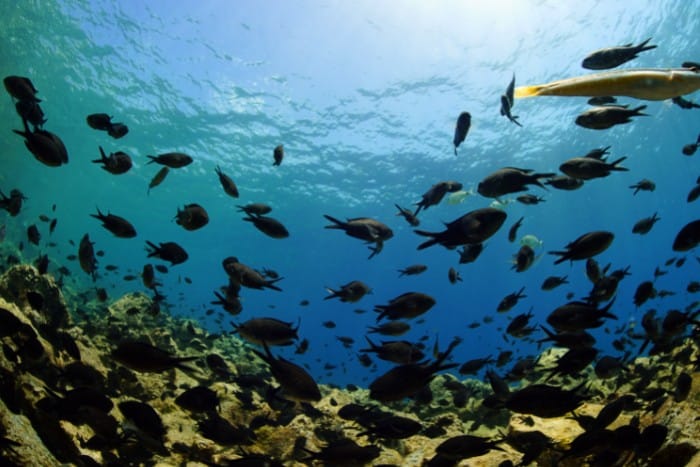
Conclusion
Fishing serves many different purposes for people all over the world. For some people, it may just be a chance to get away and enjoy the outdoors; for others, it could mean their entire livelihood.
As a result, it’s up to the everyday angler to do our best to care for the water sources and do everything in our power to keep things healthy for generations to come.
Simple things like cleaning up after ourselves, handling fish properly, and even supporting local fishing shops can go a long way in allowing fishing to continue to serve its purpose.
